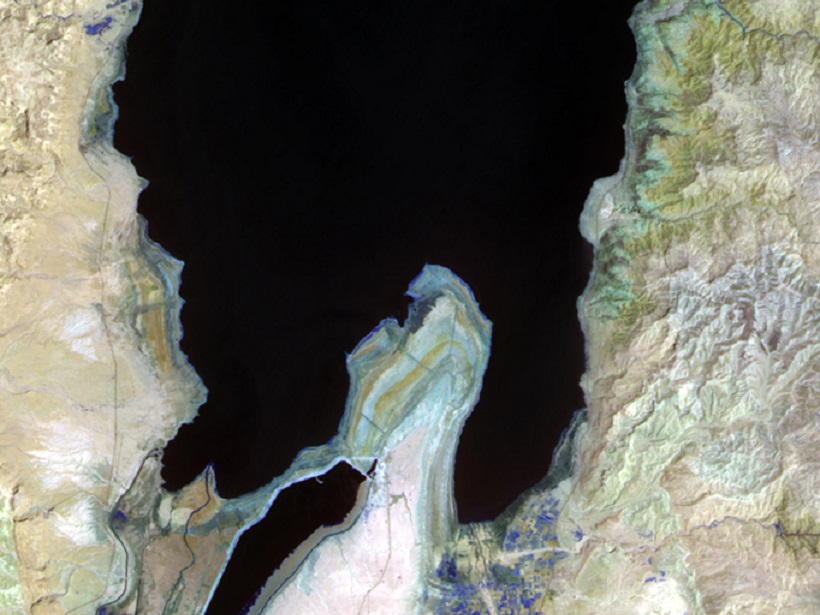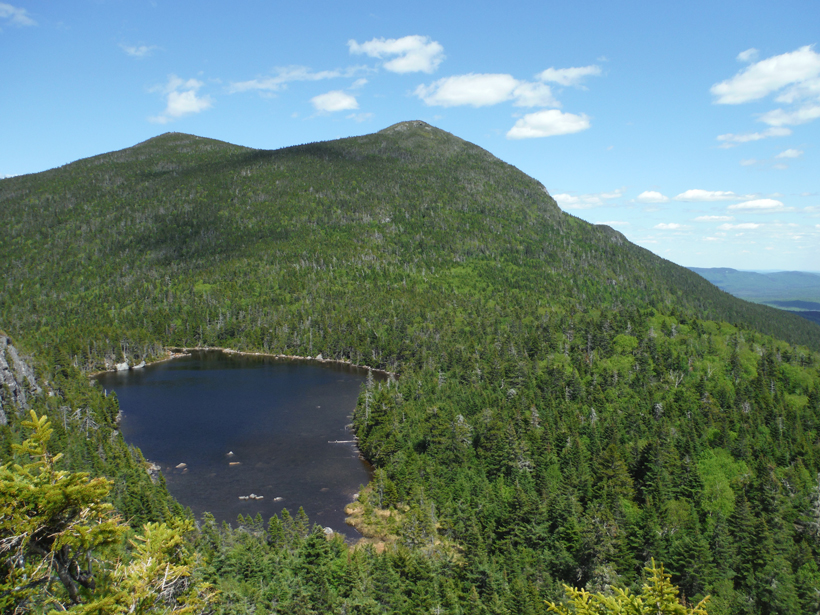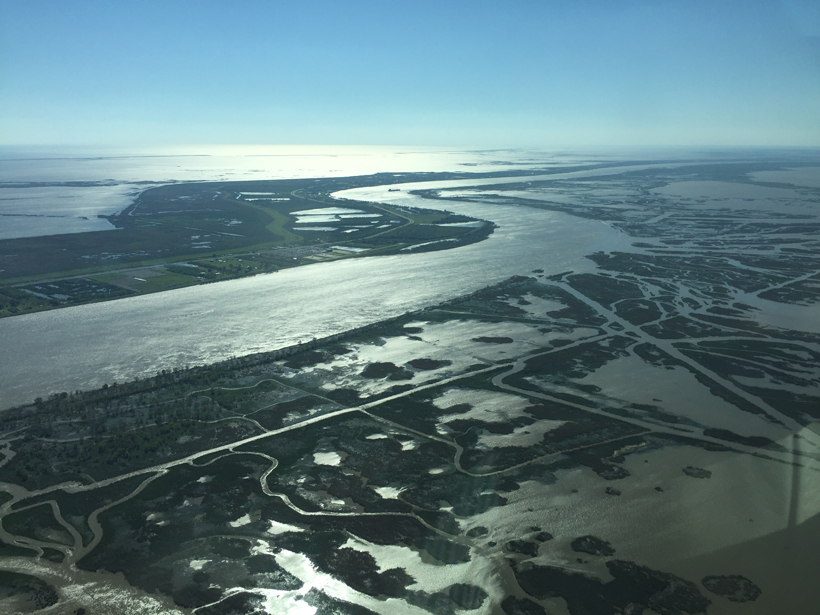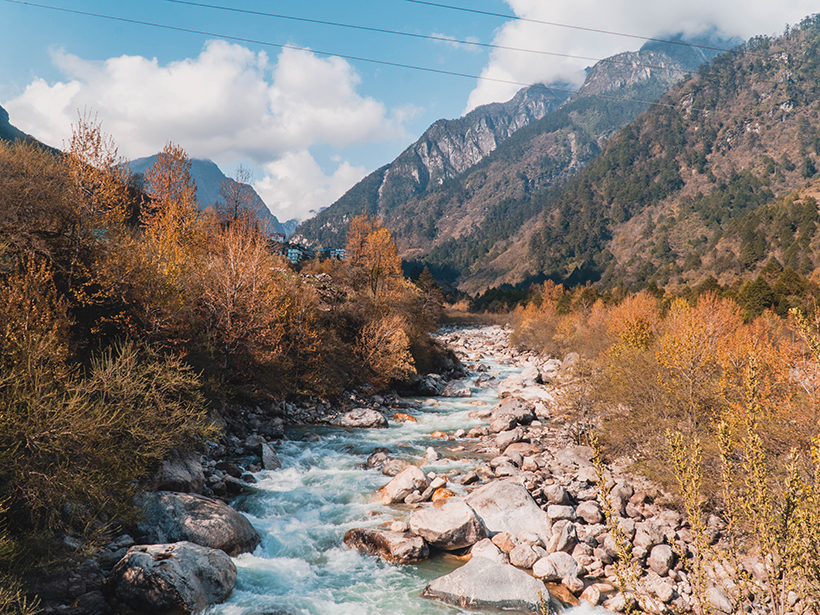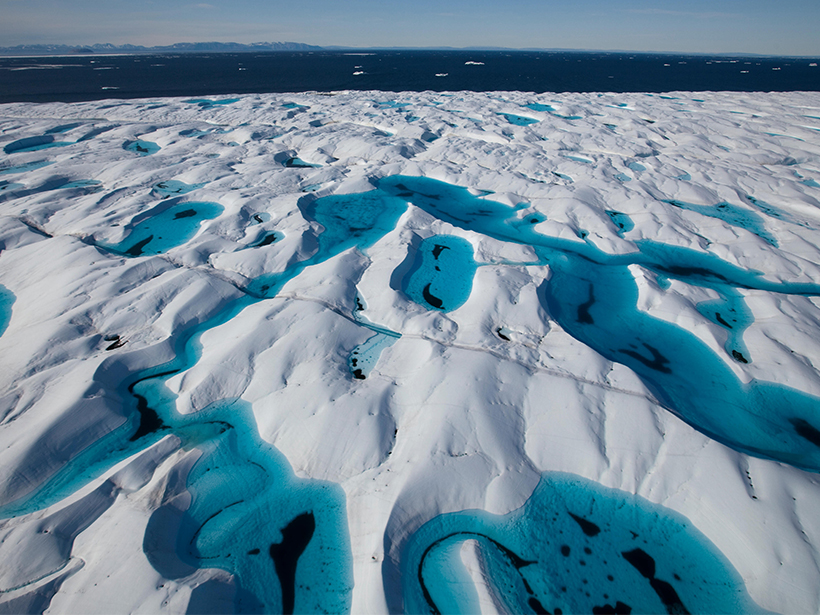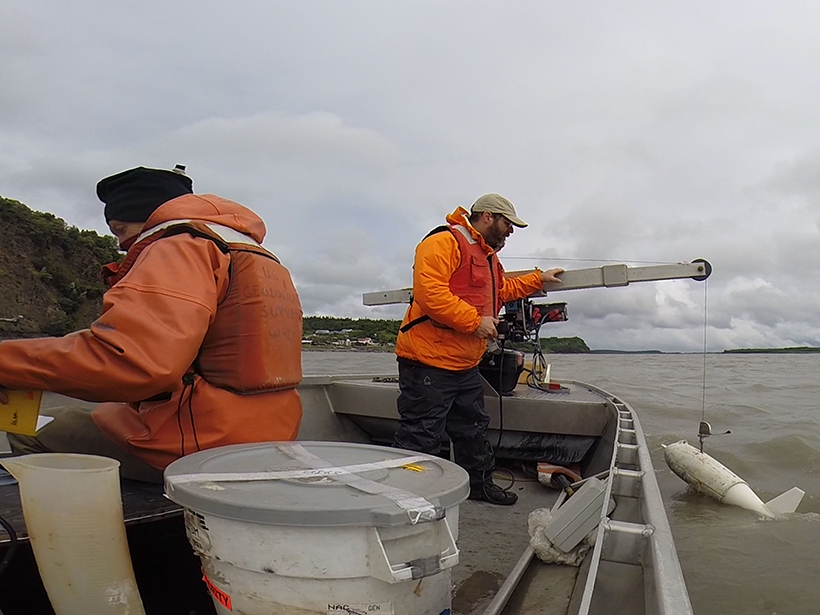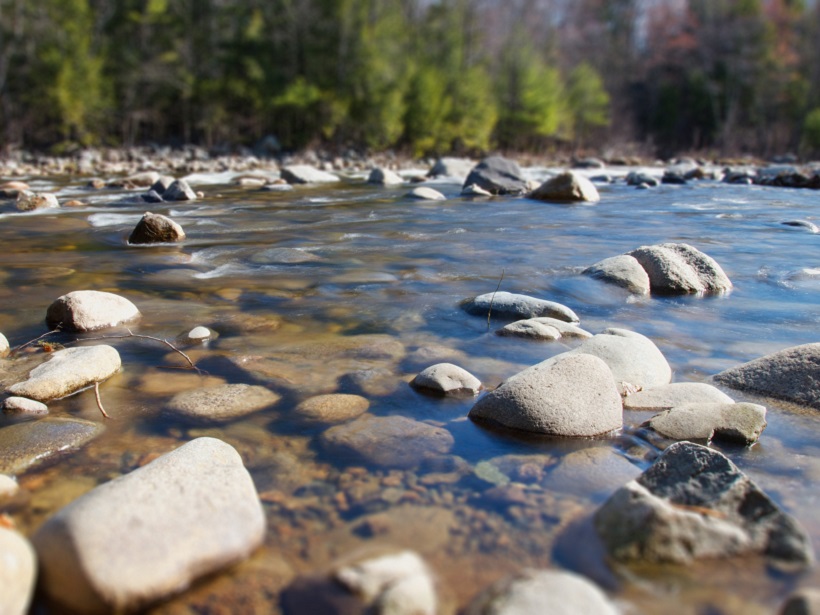Satellite-based optical sensors can detect, measure and monitor changes in lakes, reservoirs, rivers and wetlands, providing useful data with multiple applications for science and society.
rivers
How Are Sediment Pulses Generated?
A new long-term flume experiment shows that bed load gravel travels downstream in recurring, 10-hour pulses even when water flow and sediment supply are constant.
Effects of Acid Rain, Climate Change on Freshwater Lakes
New England lakes weathered years of acid rain. A new study tracks how they are faring after 30 years of regulation and how climate change factors into the equation.
Rethinking the River
The Mississippi River and its delta and plume provide insights into research-informed approaches to managing river-dominated coastal zones.
A Closer Look at Turbulent Transport in Gravel Streambeds
Lab-built streams reveal new insights into turbulence-driven exchange of dissolved substances between stream water and sediments below.
Rare Glacial River Drains Potentially Harmful Lakes
Antarctic lakes have contributed to ice shelf breakup in the past, but a glacier in Greenland appears safe from a similar fate, thanks to a river that drains away water.
Using Microbes to Predict the Flow of Arctic Rivers
Bacterial DNA provides a good estimate of river discharge.
On Integrating Sedimentology and Hydrogeology in Streambeds
A new modeling blueprint seeks to unify sedimentology, hydrology, and hydrogeology in the modeling of streambeds.
How Fast Is the Nile Delta Sinking?
New study calculates the delta’s subsidence on the basis of satellite data.
Life in the Hyporheic Zone
Defining the chemical relationships between water, sediment, and organisms that thrive beneath riverbeds.

